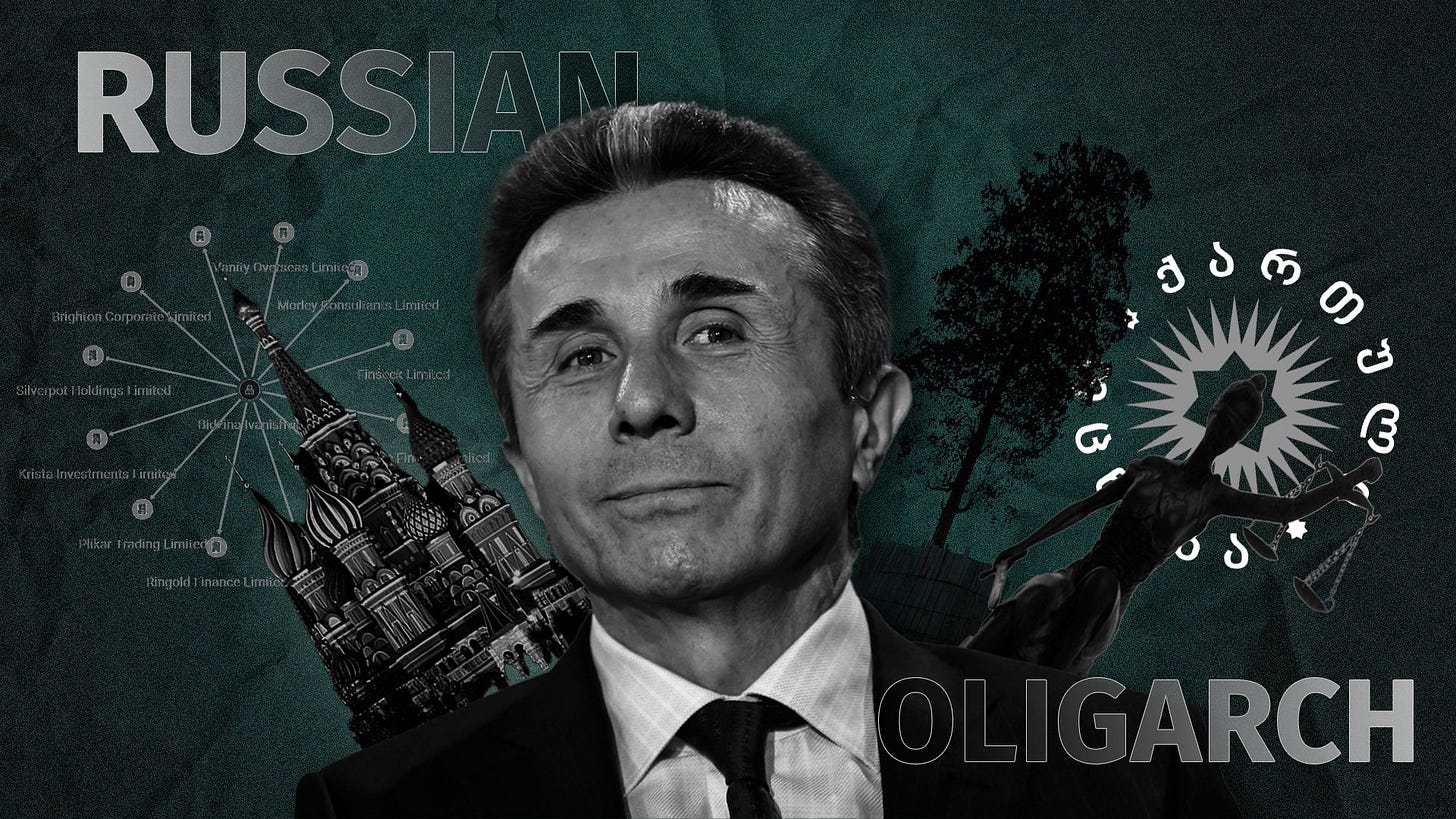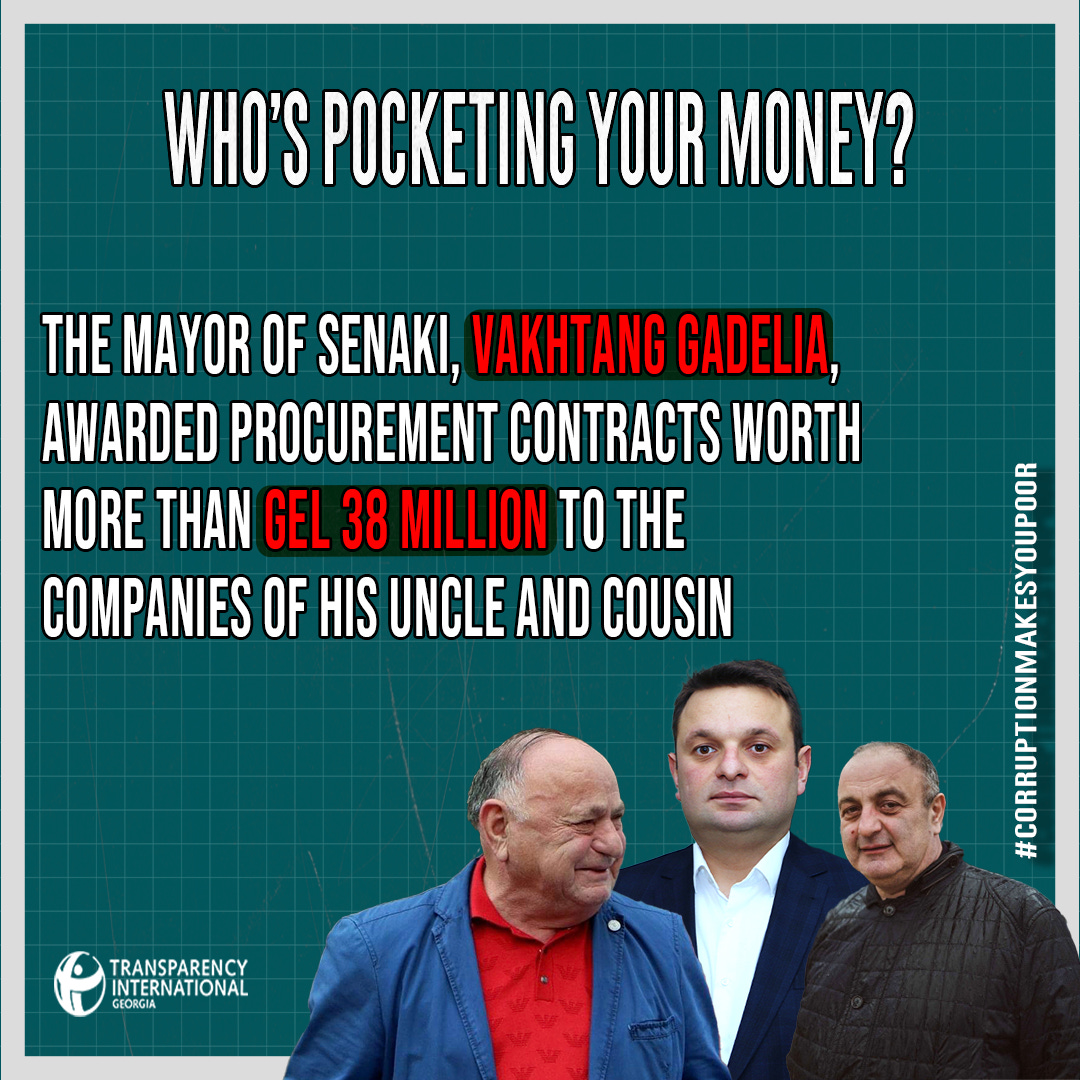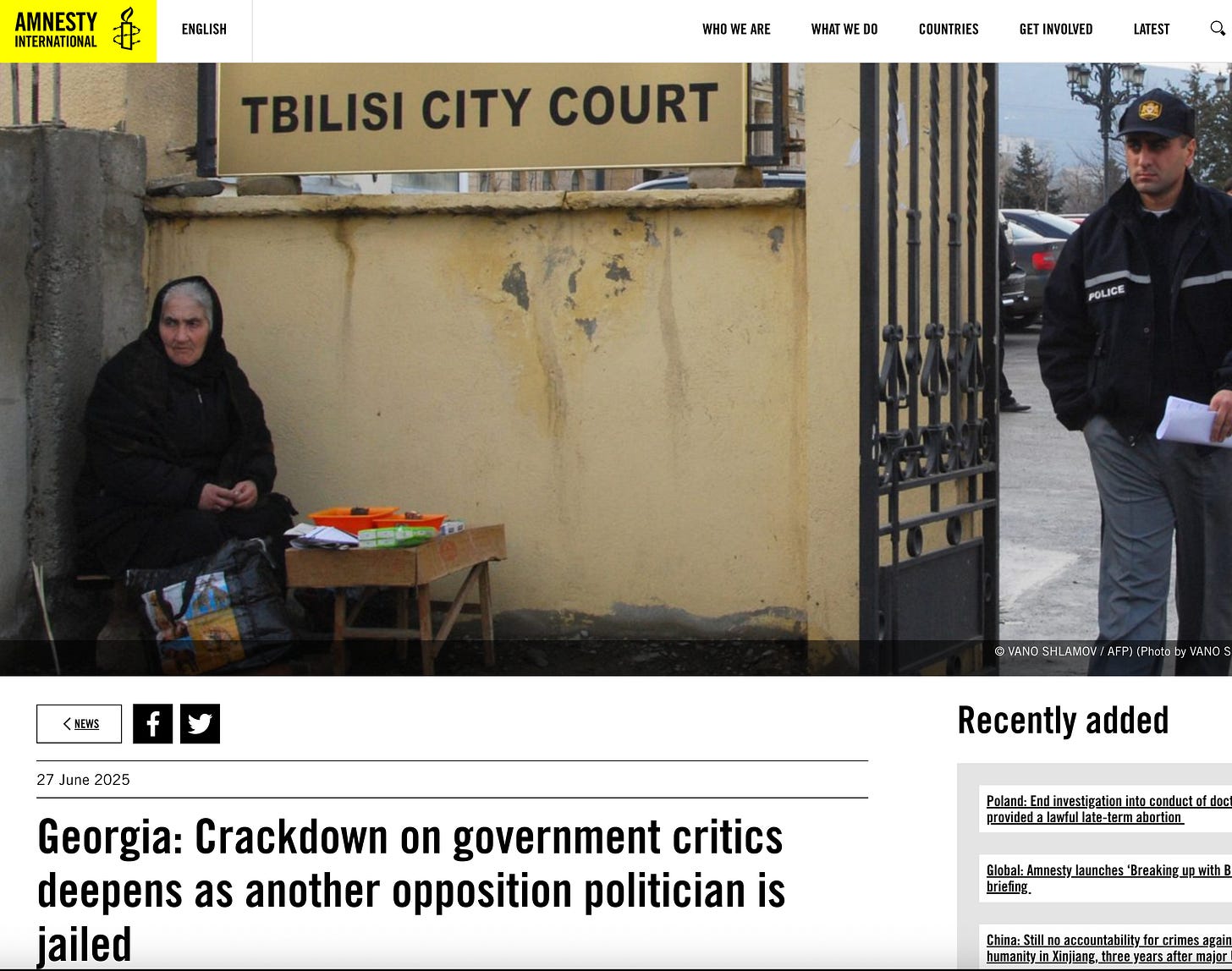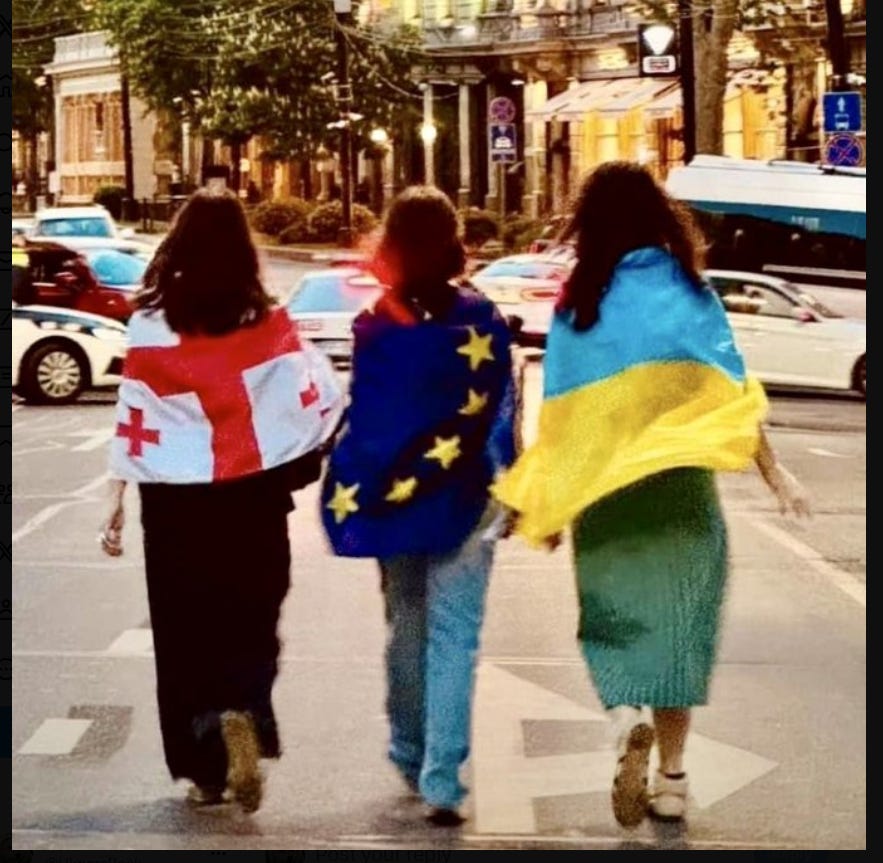Georgia’s paradox: Repression, dependency, and the survival of Georgian Dream
Why sanctions will work in Georgia
Georgian Dream does not endure because it is popular. In fact, surveys consistently show that the majority of Georgians distrust the government, dislike Bidzina Ivanishvili, and want closer ties with Europe. And yet, the party that has ruled since 2012 continues to dominate elections and control the state.
This is the paradox of modern Georgia: an unpopular government that has mastered the art of survival by fusing economic dependency with repression, and by distributing just enough benefits to keep people compliant.
A feudal order in modern dress
Georgia’s political economy functions less like a democracy and more like a neo-feudal system. At the top sits Ivanishvili, who controls the flow of capital and access to power. Below him are layers of intermediaries - ministers, governors, mayors, and civil servants - whose loyalty is secured not by ideology, but by dependency.
Local officials, teachers, librarians, even municipal clerks often owe their jobs to party structures, not to voters. Entire families are folded into this machine: a cousin placed in the police, an uncle in a public works office, a brother-in-law in a municipal service. This is not meritocracy. It is clientelism.
And this clientelism is expensive. Every “ghost job,” every political promotion, every inflated contract drains resources from the state budget. The Georgian taxpayer is footing the bill for Georgian Dream’s tentacles in every part of society. It is a system that buys loyalty not with ideology, but with public money.
The message is clear: loyalty guarantees your livelihood, while dissent puts everything at risk - your job, your family’s welfare, your children’s future.
A Georgian Dream created librarian in a village without a library will do anything to keep the status quo.
Economic centralization: control through dependency
The Georgian economy is not free in any meaningful sense. State tenders, subsidies, and infrastructure contracts overwhelmingly go to companies linked to Georgian Dream donors or insiders. Transparency International and investigative journalists have repeatedly shown how this “donor-contract loop” funnels resources into party coffers.
Entrepreneurs quickly learn the rules: stay loyal and you may be rewarded with access to tenders, land privatization, or state-backed credit. Refuse, and you will be cut out of opportunities. Many “ghost jobs” exist on payrolls purely to secure votes for Georgian Dream.
The public sector itself has become one of the largest instruments of political control. Teachers, doctors, municipal employees - entire professions are bound by precarious contracts or the expectation of political loyalty.
This centralization of the economy also comes with a heavy cost. Public money that should be spent on innovation, education, and infrastructure is instead siphoned into politically connected firms or wasted on make-work positions designed to keep the patronage system afloat. Georgian Dream’s power is bought with the state’s resources, draining the country’s future.
This is how Georgian Dream has turned the economy into an extension of political power. It is not capitalism. It is a centrally managed patronage system - and an extraordinarily expensive one at that.
Fear versus benefit: the survival formula
If this system was built on fear alone, it would collapse under the weight of resentment. But Georgian Dream has perfected a balancing act: it uses repression sparingly but visibly, while distributing benefits at strategic moments.
Fear is simple. Public servants know that attending an opposition rally can cost them their jobs. Journalists and activists face harassment, smear campaigns, or lawsuits. Protesters are met with batons, fines, and sometimes prison.
But alongside fear comes benefit. Before elections, pensions are increased. Farmers receive subsidies. Food parcels are distributed in rural areas. Loans are forgiven, or utility bills written off.
These programs are not sustainable development. They are short-term payouts meant to pacify the population - and they come at immense cost to the public budget. Money that could modernize Georgia is instead poured into buying political loyalty.
People know these are Georgian Dream’s political bribes, but in an insecure economy, immediate survival often outweighs long-term principles. When the choice is between criticizing the government or keeping a paycheck and receiving a handout, many choose the latter.
The paradox is complete: most Georgians dislike Georgian Dream, yet many comply with its rule because fear makes resistance costly and benefits make compliance tolerable.
Human rights violations as a tool of control
Alongside economic dependency and electoral manipulation, Georgian Dream has increasingly resorted to systematic human rights violations. International watchdogs, including Amnesty International, Human Rights Watch, and the U.S. State Department, have documented a pattern of excessive use of force against peaceful protesters, harassment and surveillance of activists, arbitrary arrests of opposition supporters, and legal intimidation of journalists. These abuses are not isolated incidents - they form part of a deliberate strategy to silence dissent and reinforce the climate of fear. The rising frequency and brazenness of such violations underline both the regime’s insecurity and its determination to maintain power at any cost.
Elections as part of the capture
The system does not only rest on jobs and handouts - but it is also reinforced through election manipulation.
In the 2024 parliamentary elections, Georgian Dream rigged the game long before votes were cast. Institutions that could check fraud - the judiciary, the ombudsman, the election administration - were captured and neutralized.
Electoral law was reshaped to favor the ruling party, giving it control over the Central Election Commission and the ability to pressure members before election day.
The State Security Service compiled detailed voter profiles, weaponizing data on political views, employment, and benefits to pressure entire families: lose your job, lose your aid, face inspections, unless you comply.
Commissions were stacked with loyalists enabling carousel voting, identity fraud, and illegal use of non-voters’ names. On election day, the infamous “corridor of fear” greeted voters with regime activists, criminals, and pro-government NGOs ensuring secrecy felt like an illusion.
As Natia Mezvrishvili’s important Substack analysis, Beyond the Ballot Box, underlines, elections in Georgia are not decided on election day but long before, through years of preparation, institutional capture, and subtle coercion. This manipulation is not only cynical - it is resource-intensive, draining the state in order to preserve power for one man and his network.
Georgian Dream does not need ballot stuffing. It relies on institutional capture, coercion, and fear - all of which are costly to maintain.
With unlimited resources and a steady flow of cash from its enablers, Georgian Dream has over the years planned and executed this scheme in such a detailed and multi-phased way that its very confidence and arrogance may, in the end, become its downfall.
Why this matters for the West
From Brussels or Washington, Georgian Dream often presents itself as a stabilizing force - a government that prevents unrest and keeps Georgia from “chaos.” In reality, the so-called stability is manufactured through dependency, repression, and rigged elections.
This is not resilience. It is a fragile system held together by Ivanishvili’s fortune, control of the economy, manipulation of the law, and the calculated use of fear and handouts. It is the very definition of a captured state.
And it is costly. The Georgian people are paying the price for this system of suffocation, while Ivanishvili and his enablers profit. The logic is straightforward: the more expensive it is for him to maintain the patronage machine, the more vulnerable it becomes to external pressure.
This is why sanctions are not just symbolic - they are strategic and probably the only way to break Georgian Dream.
By targeting Georgian Dream officials, financiers, and enablers, the West can raise the cost of capture and weaken the regime’s ability to sustain itself.
Conclusion: stability or suffocation?
Georgia does not lack democratic spirit. The massive protests show once again where the people stand: with Europe, freedom, and accountability.
What holds the country back is not public opinion, but a system of dependency that fuses economy, politics, and electoral manipulation into one apparatus of control. Georgian Dream’s survival is not the result of good governance or popularity. It is the product of fear, centralization, rigged institutions, transactional benefits, and human rights abuses - all financed at immense cost to the state and the people.
The question for Western policymakers is whether they will keep mistaking suffocation for stability, or whether they will finally confront the reality: Georgian Dream’s power endures not because of Georgians, but in spite of them.
And the only way to raise the cost of this system high enough to break it is through stricter, targeted sanctions on Ivanishvili’s network of officials, financiers, and enablers.







Very good and helpful article!